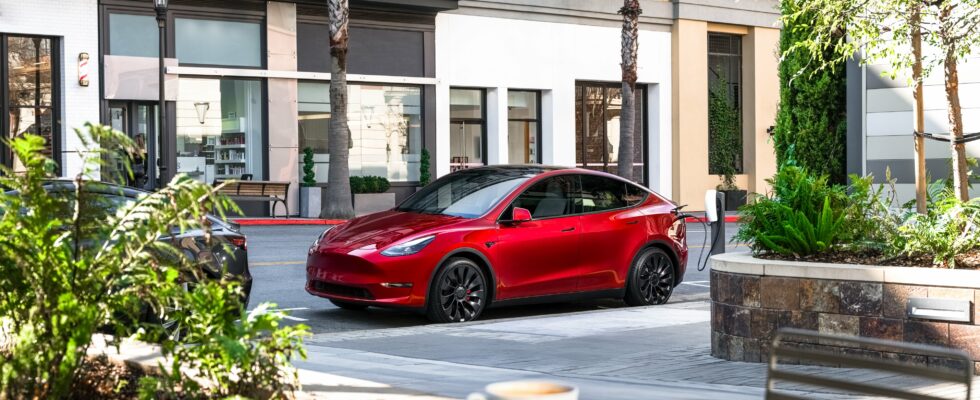With a market at half mast, after an exceptional year 2023the automotive sector sets up at Porte de Versailles in Paris (from October 15 to 20). In this gloomy context, manufacturers must meet numerous challenges: launching new models, dealing with the establishment of foreign competitors in France, responding to success of electric vehicles which cannot be denied, especially within automobile fleets, inventing alternative transport with the undeniable multiplication of cars without a license for the private market or even adapting to the explosion of brands in favor of cycle work. Automotive professionals must adapt to new modes of mobility.
Quite a symbol. From New Year’s Eve, no Uber VTC will be able to travel aboard a diesel vehicle, including a mixed hybrid version. The stated objective is to reach 50% electric vehicles in 2025. Last September, the on-demand transport platform Allocab announced the deployment in Ile-de-France of 500 Tesla Model Ys manufactured in Germany and plans to gradually move to 2,000 cars in France. The offer to drivers includes rental, insurance, maintenance and an extension of the battery warranty up to 300,000 kilometers.
“The deployment of zero-emission automobiles is taking place at a slower pace than expected, but it will continue,” estimates Guillaume Maureau, deputy general director for commerce at Ayvens. The sluggishness recorded this year is partly due to the cessation of the bonus to companies which contributed to slowing down their growth and, on the other hand, to the surge in the price of electricity, in particular the prices charged at public terminals and on motorways.”
Multiply individual charging sockets
To encourage the energy transition, Uber allocates an envelope of 4,500 euros when purchasing an electric vehicle. Then in February 2024, the company urgently released 5 million euros for the benefit of its 2,000 drivers in order to compensate for the loss of the bonus intended to finance recharging. According to his calculations, connections to public stations cost his drivers 350 euros per month, compared to 160 at home.
Based on this observation, Beev offers companies the installation of sockets directly in their employees’ homes. “During off-peak hours, the economy can be up to 70% compared to city infrastructure,” assesses Solal Botbol, president and co-founder of the young company specializing in electromobility services. Employees save time, since they no longer have to look for an equipped and available parking space, and benefit from a tax credit of 500 euros. Their employer can recover VAT on the purchase and equipment, obtain tax deductions and local subsidies. “We supported around a hundred employees including those from Burger King, Cuisinella, Santé Cie, Xylem France. In one year, we observed an increase of 150% for this service,” declares Solal Botbol.
Created to help individuals lost in the jungle of regulations and service providers, Beev appeals to professionals. While the average size of its customers’ fleet was 10 to 20 vehicles in 2023, the managed fleet now amounts to more than 50 units. “We are developing our tools according to this evolution and sectors of activity which are very heterogeneous: hospitality, logistics, service providers,” explains Solal Botbol.
Beev works as a broker with rental companies to find the most competitive one at a given time. “The Teslas continue to please for their value for money, their good autonomy from the entry level and the standard equipment offered as an option in other brands, such as the panoramic roof. The Renault Megane and Scenic are doing well and we have already received orders for R5. The Koreans Hyundai and Kia are also doing well, observes Solal Botbol. Now the manufacturers’ ranges meet most of the needs with an appreciable price breakdown.
Like the NGO Transport & Environment, the young entrepreneur is convinced that the slowdown in electrification is only temporary. And that momentum will resume in 2025.
.
